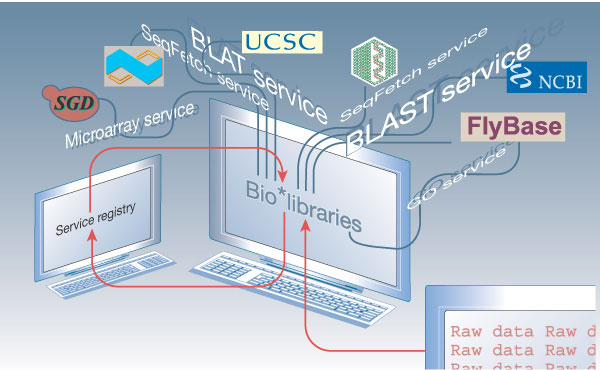|
 |
||
Bioinformatics @ nature.com
| Description | : | Confidence In Raw Data.
"The most common complaint we hear from scientists is: ‘but we’re not bioinformaticians’, says Ramin Cyrus, a senior director for Celera... Newcomers are often overwhelmed by the tools on offer and the knowledge of genetics that is presupposed on the part of the user. The tools tend to assume an understanding of terms and principles that are unfamiliar to, say, physiologists and pharmacologists, and without this knowledge the users cannot feel confidence in the results that they get... Many researchers remain unaware of the potential of these ressources. A much-cited survey commissioned two years ago by the London-based Wellcome Trust revealed that only about half of the biomedical researchers using genome databases were familiar with all the tools on offer to make full use of the data. A significant number didn’t even know of the existence of the European Bioinformatics Institute’s public Ensembl database and website, which collates vast amounts of diverse information on the human genome" Nature 425, 209 (11 September 2003) | doi:10.1038/425209b "Science is an assault on ignorance, Its legacies are concepts, technologies and databases. As with many walks in life, the most glamorous legacies tend to get the most attention and the least are neglected" http://socrates.berkeley.edu/~scotch/maureretal_nature.pdf GOTO InformationLiteracy GOTO TheMostGlamorousOnTheMarket GOTO CryItOut-LOUD |
||||
|
|||||
|
| Powered by Gallery v1.4.4 | RSS |